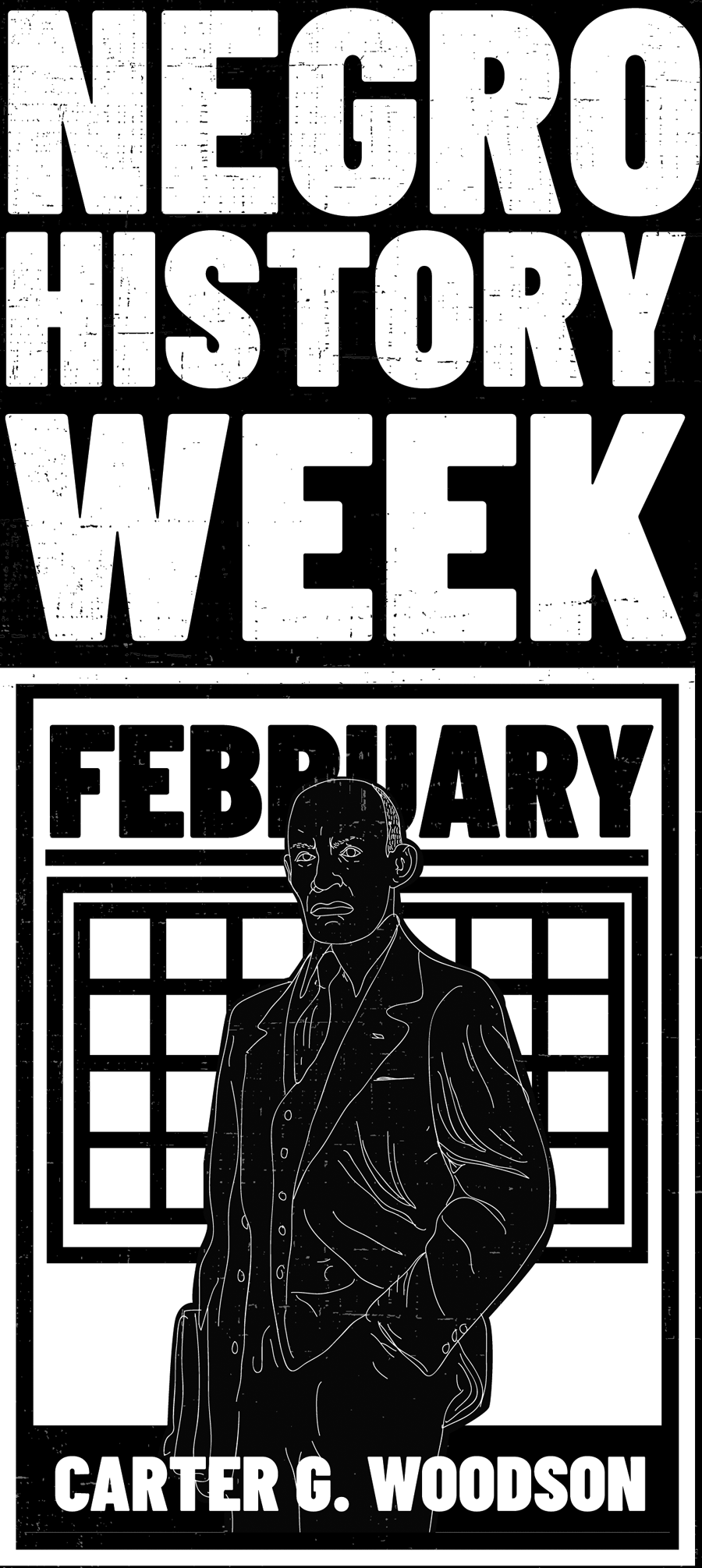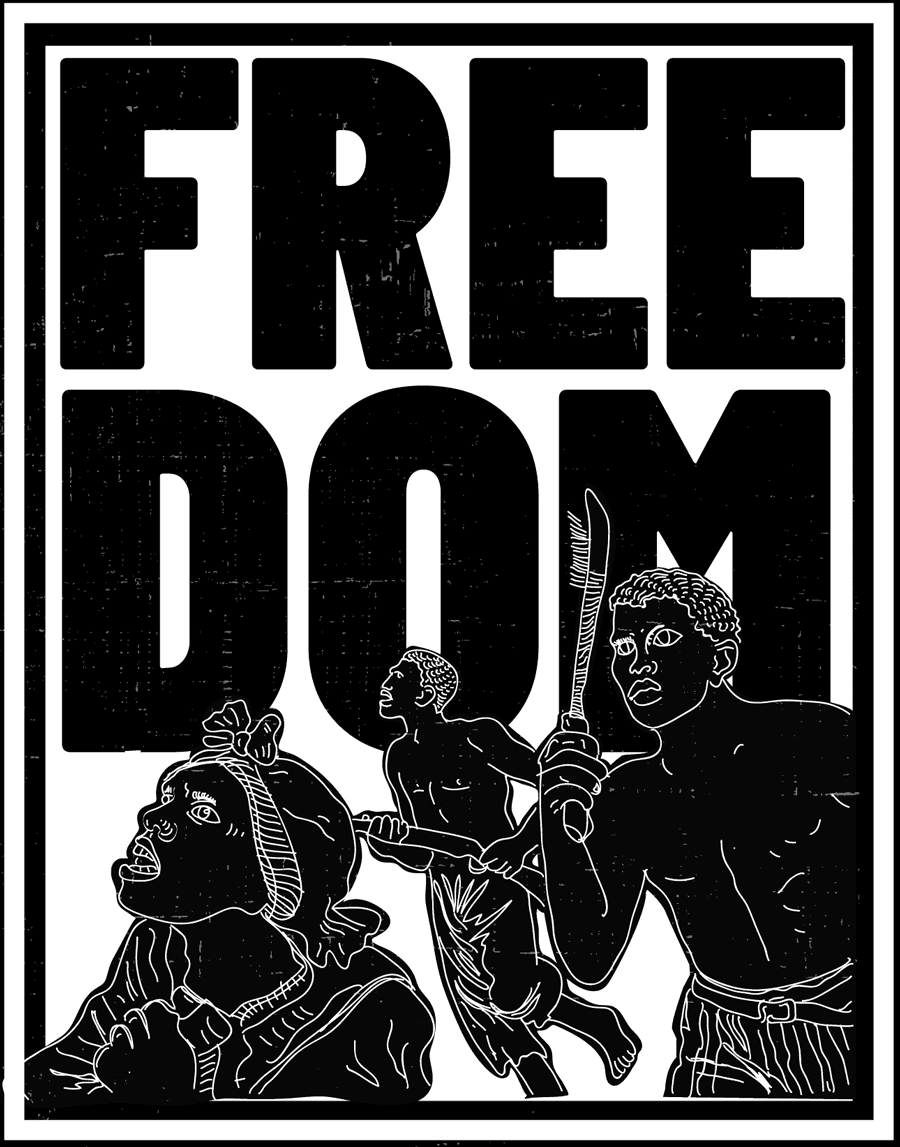
Every year, in the US and other parts of the world, February is celebrated as “Black History Month.” But are there reasons to “celebrate”? Unique “Black” Kennedy and Michael “Safear” Ness take a look at the history and impact of Black History Month in these essays.
Black and Safear are part of the Imprisoned Abolitionist Collective (IAC). Utopix and the IAC have an ongoing collaboration to produce content to be distributed in US prisons in order to boost political education and consciousness.
aa
aaa
The History of Black History Month
by Michael “Safear” Ness
No one seems to know the history of Black History Month. Where does the month come from? Black, brown, white – young and old – everyone I asked had to perform a quick Google search to find its origin. It didn’t seem right to celebrate the month without knowing where it came from. In fact, It’s almost superficial. And maybe that’s what Black history has become for American society, a superficial show to justify systemic racism, because how can we be racist if we take the time to «celebrate Black History Month»?

That’s not to say Black History Month is superficial for everyone. It certainly didn’t begin in a superficial way. In 1926 Carter Woodson designated the second week of February as Negro History Week. Carter, realizing that this was a subject of great importance, hoped the week would come to be celebrated annually. It’s not really clear how Negro History Week became Black History Month. In the 1970’s University professors began promoting the month, holding an official celebration at Kent State University. By 1976 it was so popular that President Gerald Ford declared it an official celebration.

Unfortunately, much of Black History Month has become whitewashed. Black history is often taught from a white perspective, removing the revolutionary attitude of Black people from mainstream media and school curricula. These liberal whites prefer to teach about non-threatening and non-violent Black historical figures.

Reshaping history ignores enslaved and colonized peoples revolting by any means necessary, as is their right. Instead, this perspective portrays the liberation of Black folks as if it’s already here as a result of purely peaceful activism. It thus makes Black history palatable to white people and deprives Black people of proven methods of liberation.
Michael “Safear” Ness is a white/Mexican Muslim practicing prison abolition at SCI Fayette in Pennsylvania. Safear grew up in Philadelphia and has spent all of his adult life under various forms of carceral supervision. Although he is held captive, he has transformed his cell into a learning center. Education is now his weapon of resistance.

Why Do We Celebrate Black History Month?
by Unique «Black» Kennedy
Black History Month is celebrated as if we won. As if we are free. Juneteenth supposedly being the day when it became officially legislated, the freedom and equality of Black people. But look around, how many of us are free? Are w free from oppression? Free from debt? Free from discrimination? Is this equality? When you contemplate Black history you’re taught to think MLK, Malcolm X, and Rosa Parks. If you really think about it, they were just voices heard, activists using their platform and influence to speak about oppression and what we were subjected to as people of color.
Malcolm (Malik) El-Shabazz – may Allah have mercy on him – was a witness to the injustice of racism. After travelling the land of Islam, and seeing the justice of Islam, he wrote a letter from Mecca saying, «If white Americans would accept the religion of Islam, if they would accept the oneness of Allah (God), then they would also sincerely accept the oneness of man, and they would cease to measure others always in terms of their differences in color.»

Four hundred or so years ago, a race of people were hunted, kidnapped, chained, and tortured. They were taken from their homes and families, forced to work to survive. Those who resisted, or attempted to escape were beaten within inches of their lives, or even killed. Some went as far as taking their own lives, believing suicide to be better than enslavement. To be Black meant you were an abomination to white-kind. For centuries Black families were torn apart, sold, and tortured for no other reason except the color of their skin. Despite the oppression, we preserved and fought with our faith and belief in Allah (God). Black people fought for so hard and so long that now our perception of freedom and equality has become a settlement for our existence.
Take a look at our condition today: oppression is widespread. Segregation is not just Black and white, but rich and poor, strong and weak. Religious discrimination is rampant. Slavery and racism have evolved into a judicial system where some of us are physically chained, beaten within an inch of our lives, or just killed.

Some of us are mentally chained and emotionally suppressed. Tasers are the new whips. Prison buses are the new ships. State correctional facilities and jails are the new plantations. The gun replaced the noose. Those who try to escape are hunted like animals until they are captured or murdered. Some still take their own lives, believing suicide to be better than chains. And there’s people like me, falling into prostration, clinging on to faith in Allah (God), seeking refuge.

So why is Black History Month celebrated? We are still being oppressed, kidnapped, chained, murdered, and silenced!!!… Still looked at as an abomination to mankind for no other reason than the color of our skin. May Allah save us.
In the name of Allah, the Most Merciful, the Bestower of Mercy «Oh you who believe! Stand out firmly for Allah as just witnesses; and let not the enmity and hatred of theirs make you avoid justice. Be just: That is nearer to piety. And fear Allah. Verily, Allah is well acquainted with what you do.»
Unique «Black» Kennedy hopes to share his perspective as a Muslim, a prisoner, and a Black man in America. He is currently imprisoned in Pennsylvania State Prison, and spends his time reading, writing, and resisting systems of oppression.
Utopix has an ongoing collaboration with the Imprisoned Abolitionist Collective (IAC) to produce content on past and present struggles to be distributed in US prisons. The IAC is a group of incarcerated people dedicated to exposing and fighting against the oppressive prison industrial complex in the US.
Artwork: Valentina Aguirre